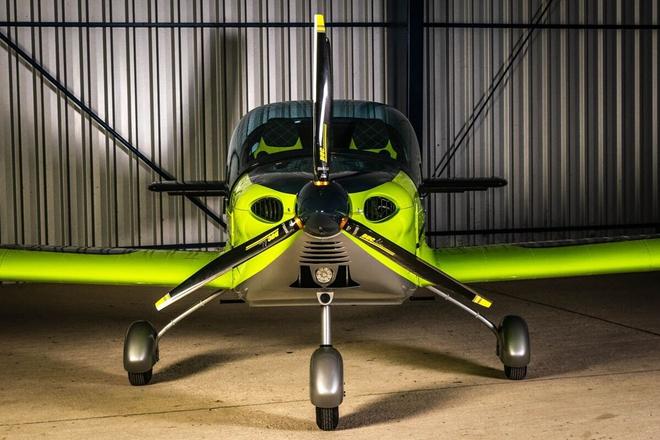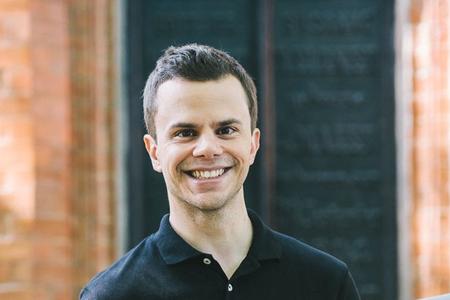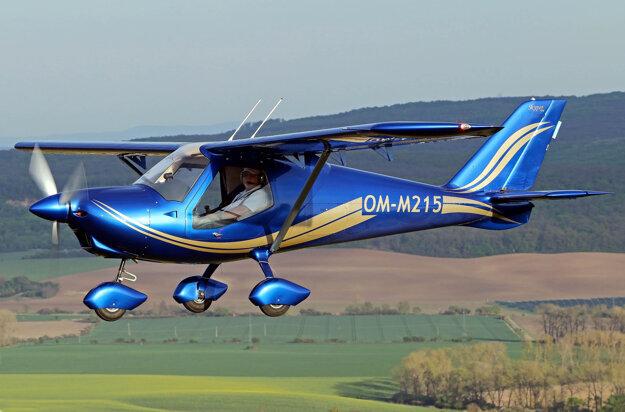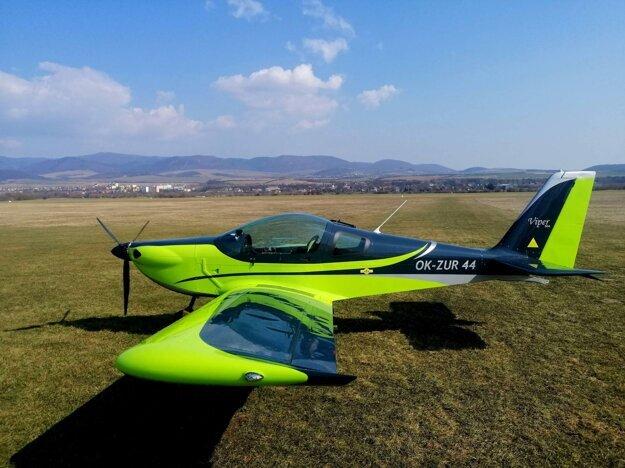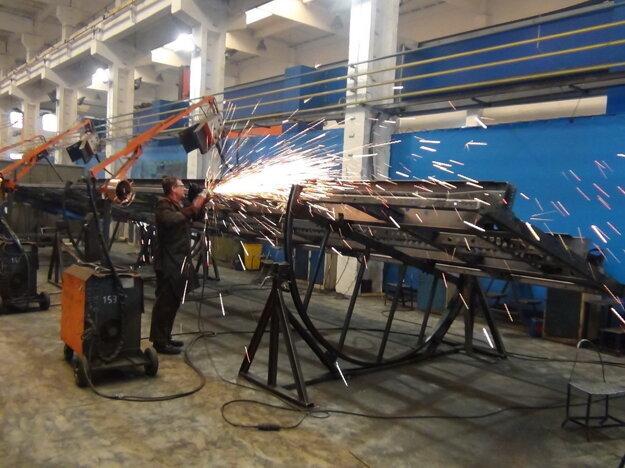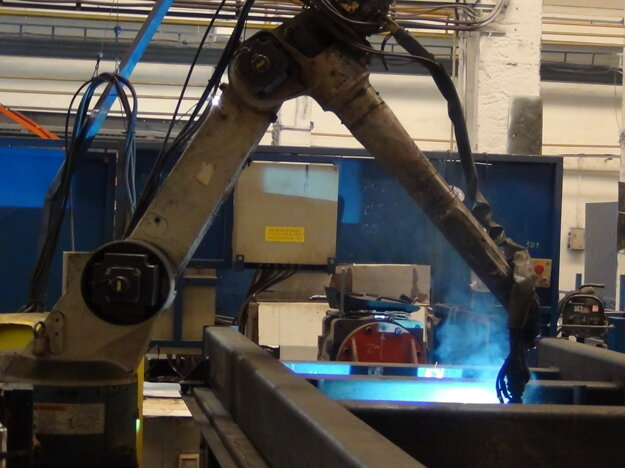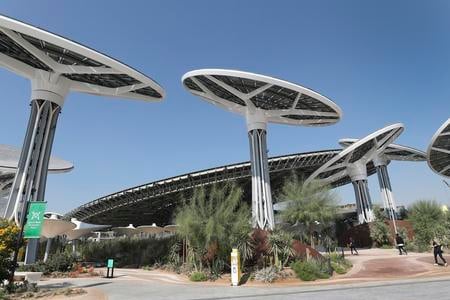The Prešov-based company Tomark is a widely recognised player in the Slovak mechanical engineering industry but despite this, it nearly went bankrupt over a decade ago during the economic crisis.
The firm, founded by Daniel Tomko and his son Daniel, had to lay off most of its employees and had large stocks in its warehouses but no orders. Neither did it receive support from the financing banks.
It was the savings of its owners and agreements with customers that saved Tomark at that time.
This period forced the Tomko family to think about how to protect their firm from another crisis. This thinking resulted in a new business plan, investment in modern technologies and a focus on innovative products with higher added value.This period forced the Tomko family to think about how to protect their firm from another crisis. This thinking resulted in a new business plan, investment in modern technologies and a focus on innovative products with higher added value.
In May 2009, they created the Tomark Aero division of the company, which develops and produces small aircraft. Its creation was preceded by a preparation stage and several years spent on the development of their own aircraft.
Today, the firm’s latest project is a helicopter-like VTOL aircraft powered by hydrogen.
From aircraft to a special machine
In fact, Tomark had toyed with the idea of its own helicopter in the past. Daniel Tomko Jr., the company’s CEO, remembers the period when they made progress with the development of the helicopter, but they never completed the project. It was frozen for several years.
They focused their energy on the development and production of a pair of sports aircraft instead. The pair, the Viper SD4 low wing and the Skyper GT9 high wing, forms the basis of the firm’s portfolio.
The Viper, which can reach Košice from Bratislava in an hour and 23 minutes, received a certificate from the European Aviation Safety Agency (EASA) several years ago. This allowed the the firm to “spread its wings” and engage a new group of customers, including flight schools, with its aircraft.
The Skyper, on the other hand, is an aircraft of sportier character. Tomark sells both aircraft in the Visegrad Region countries, Germany and France, but it has also recorded orders from the USA, Turkey and New Zealand. The company’s aviation division currently employs 50 people.
A multicopter that can take off and land vertically (VTOL) is now to be added to Tomark’s list of products. VTOLs have a future thanks their wide use, from air transport in the city to rescue work in difficult terrain, according to Tomko Jr.
European money
The realisation of this project will depend on funding. The Tomkos expect it to be expensive, and their own resources will not be enough. Therefore, they are looking for other means.
They have already taken the first step. When the Slovak Innovation and Energy Agency (SIEA) announced the Important Projects of Common European Interest (IPCEI) call, Tomark did not hesitate to put its VTOL project forward.
It is among 15 projects that are being assessed by the European Commission.
“We are in the initial phase, referred to as pre-notification, which is about administration. This is followed by the notification phase in order to obtain funding, which may be closed by the end of the year,” Tomko said.
If they obtain finance, the development of the VTOL should take about five years, he added. The money from the IPCEI call is necessary, otherwise Tomark will probably not continue working on its new project.
The IPCEI is supposed to support a plan by the European Union, which aims to reduce greenhouse gas emissions by at least 55 percent by 2030 and to achieve carbon neutrality by the middle of the 21st century.
The VTOL from Tomark fits into that plan. It will not have a classic combustion engine, but will be powered by hydrogen. It is considered to be one of the facets of electromobility, which is gaining more and more support worldwide.
“Hydrogen is the future because, unlike the current way of producing electricity and batteries, it is a clean source of energy,” Tomko said.
In addition, according to him, batteries are impractical in aviation, being heavy and having capacity limits. Hydrogen will increase the flight range. Also, "refuelling” is much faster than charging batteries, taking just a few minutes.
Tomko also assumes emission limits will be tightened for aviation in the future, as has happened in the automotive industry. Combustion engines will thus be in decline. But hydrogen is not a new fuel. It is used in industry and hydrogen technology has been around for a long time.
In addition to its own development team, Tomark wants to involve other companies and the academic sector in its hydrogen project. For example, the Technical University in Košice, where the Hydrogen Technology Research Centre is to be located.
Long-standing customer from Germany
Aircraft production sounds like an interesting business, but the cornerstone of Tomark’s business is classical mechanical engineering. The Prešov family company has been supplying welding parts for more than 25 years.
Its long-standing customers include the German concern Bernard Krone, which manufactures agricultural and truck machinery. Tomark supplies it with chassis and frames for semi-trailers.
The history of their partnership dates back to the nineties of the last century. At that time, Daniel Tomko worked as a production director in the former engineering company Strojstav, which cooperated with the Germans.
However, after privatisation and under the leadership of new owners, this cooperation ceased, so Tomko made an offer to the Germans to build a new factory and take over the contract. That happened quite quickly. Tomko found a production hall, acquired machines and started production with a dozen former Strojstav workers.
Relying on robotics
Tomark now employs a total of 240 people. It is at the forefront thanks to innovations that it financed, in part, with money from European structural funds.
The company has bought welding robots and now owns one of the largest welding lines in Central Europe. Another grant was spent on the automation of laser cutting machines and more efficient energy consumption.
Tomko Jr. claims that robotics itself has not endangered people’s jobs, but improved production conditions and increased efficiency have. On the other hand, robotic welding systems address the shortage of skilled labour.
The firm is looking for five to ten new people for technical positions. Finding them is difficult even in the east of Slovakia, despite higher unemployment there. According to its owners, Tomark is therefore dependent on automation and robotics.
“This year, we will keep investing in robots, CNC machine tools and automated lines,” Daniel Tomko Jr. said.
Pandemic and steel prices
Like other manufacturing companies in Slovakia, Tomark has felt the effects of the Covid pandemic. During last year’s first wave, its orders fell sharply, albeit temporarily.
“The period from May to August was most difficult. It has been coming back since autumn. We did not fire anyone, we used state aid to maintain employment,” Tomko said.
The pandemic decline in sales was only minimal. Last year, Tomark earned more than €25 million, which was only €1 million less than the year before. The company finished last year with a profit of €200,000.
The economic results of the aviation division for the past year have not yet been published, but in 2019, with sales of €1.2 million, it achieved a profit of around €12,000.
Tomark is currently plagued by a significant increase in the price of steel, which has been felt since the beginning of this year. Steel is its basic production material and it consumes 1,000 to 1,200 tons of it every month.
“We are trying to follow the market and we are trying to negotiate. The increase in prices will also be reflected in the price of the final product,” Tomko added.
Tomark is not feeling the steel shortage yet because it has sufficient reserves and long-term contracts with suppliers.
While the automotive and electrical engineering industries are also threatened by the semiconductor shortage crisis, Tomark is avoiding this in the aviation division. The company has no suppliers from Asia and buys mostly from Europe and the USA. For example, the American company Dynon supplies it with control panels and the German Schroth company with seat belts.
©Index


